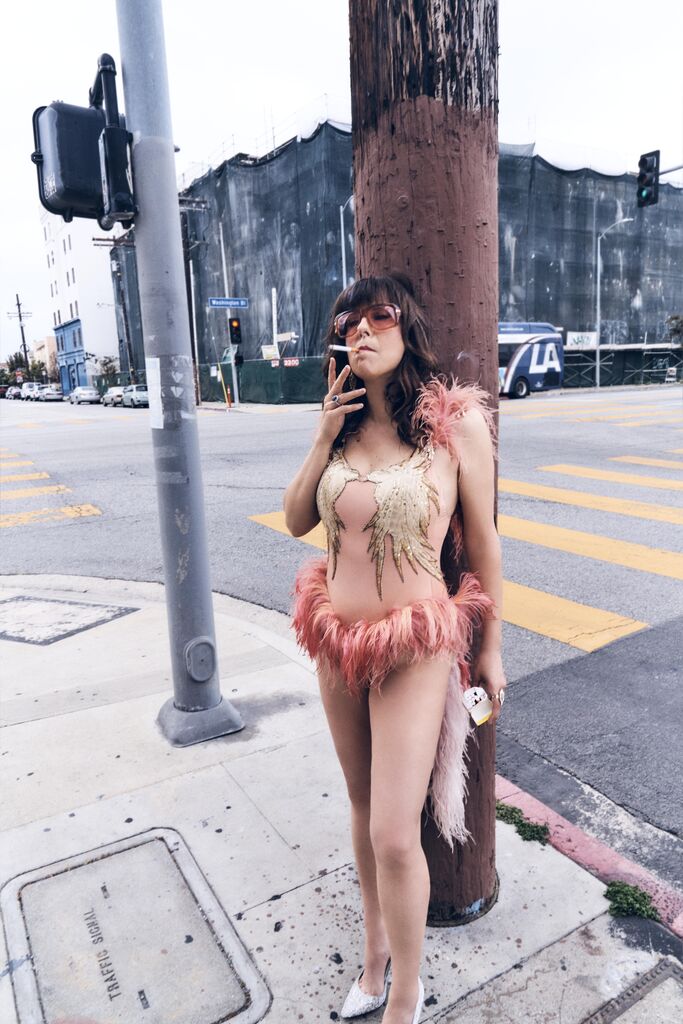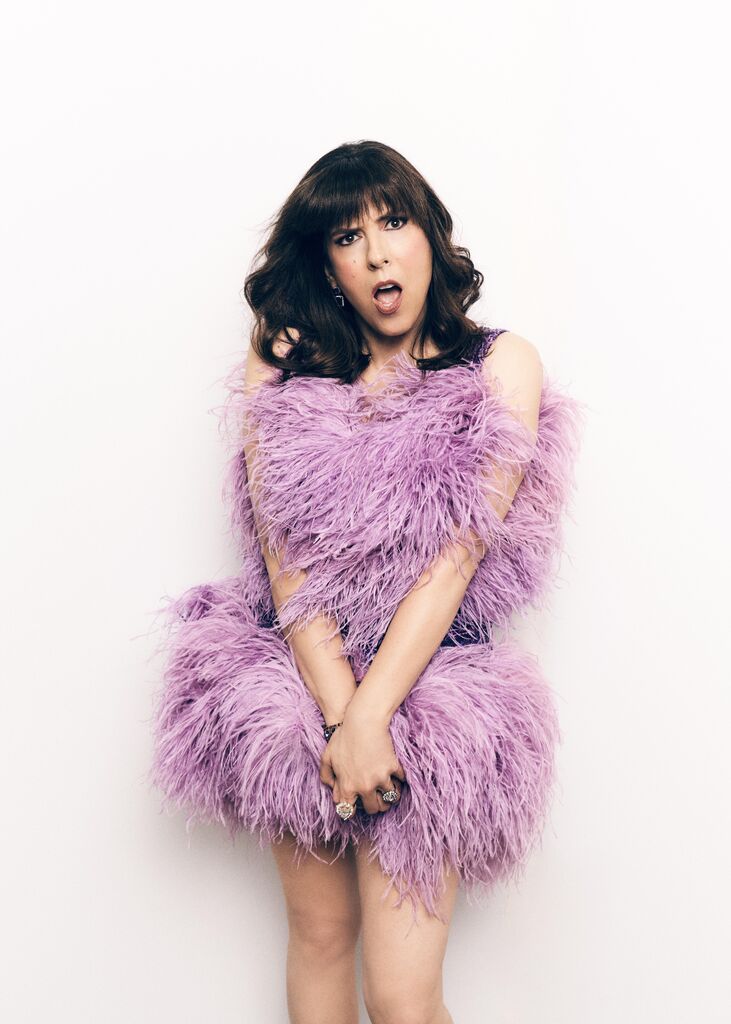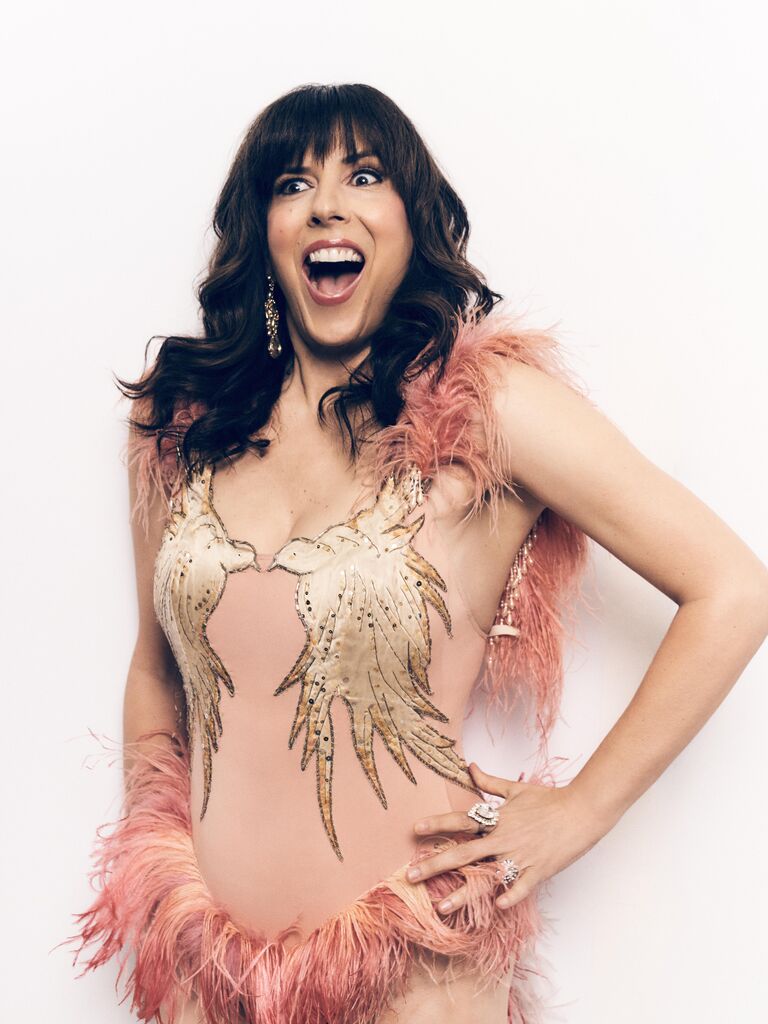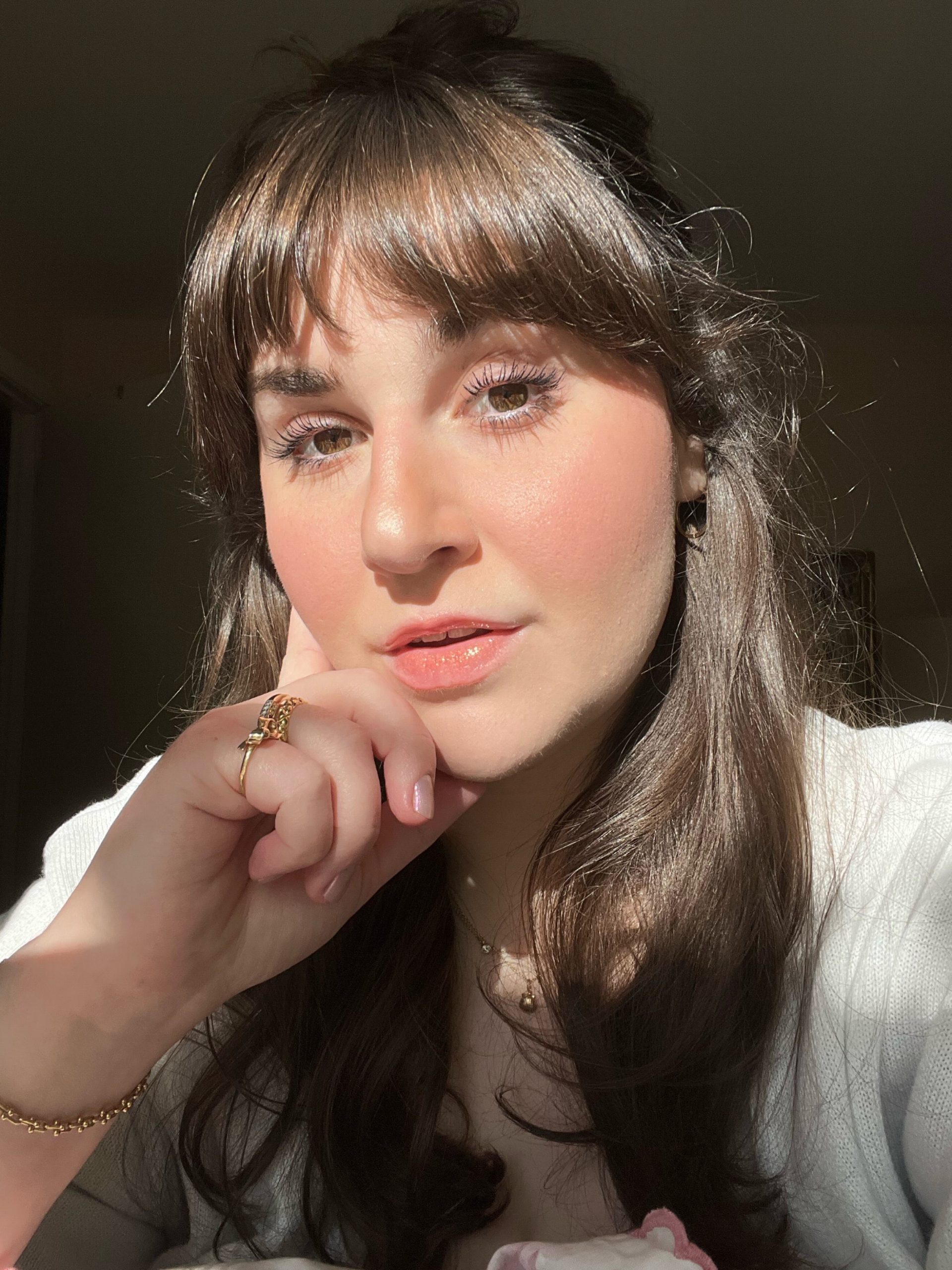
In her four seasons starring in and writing for The Righteous Gemstones, Patterson has given viewers a singular gift: representation for the horny girls. Not the sanitized, cutesy, PG-rated horniness that plagues the way female sexuality is often depicted, but the truly rabid, often nonsensical yet earnest way that women are actually talking and thinking about sex. And not just sex, but relationships, power, fear — all the abrasive corners that society so often files smooth for women, Patterson lays bare as Judy Gemstone.
“I just hope Judy gives people permission,” says Edi Patterson, joining me via Zoom from her home in LA. “Everyone has Judy in them.”
Listen closely to Judy’s filter-free approach to everything from masturbation to grief and you’ll find not only some of the most tightly written and delivered comedic lines, but a language in and of itself: of Judy-isms. From go sit on a hot car hood, you cunt, to lightning bolt straight through my slit, Patterson has curated a vernacular that is as vulgar as it is poetic. In the Gemstones writer’s room she speaks highly of her longtime collaborators Danny McBride and Jody Hill saying that once they’re all in there, they’re just “creatures,” making everything funny. But she did relish any chance she got to make Judy even more Judy, (which notably includes the iconic Outback Steakhouse monologue of season one, which Patterson conceived the idea for, and wrote in its entirety). And whether she’s saying that she had hoped to marry an orphan to avoid the entanglement of in-laws or probing her husband about why he even needs hobbies when he has a wife, the truth is: Judy is often saying what we’re all thinking.
It’s something Patterson has heard time and again from fans of the show. It’s deeply gratifying, she says, to be the voice of what no one feels safe saying out loud. “It’s so fun to say those things – those deep dark things that make people go, oh right a lot of people feel this,” she says, (noting that in real life, she did in fact luck out with wonderful in-laws). “And it’s not that those feelings last, but that it’s normal.”
Comedy has always been equal parts humor and realism for Patterson, whose roots are firmly planted in the improv world, including time spent at the Groundlings. “My mom and my dad were both so funny [when we were growing up]; they leaned absurdist.” She was raised on a steady diet of Tracy Ullman, The Young Ones, Richard Pryor, and other material that was not exactly made for kids. Her first public performance was even a parody of The Dating Game with a few female friends for their sixth grade talent show. “It was like a warm bath in my brain,” she says of catching The Outsiders on HBO. “Like, oh my god. All these cute boys fighting and I didn’t know if I wanted to be like them or kiss them.” It’s a universal experience in many ways — the defiance that feels so delicious at that age, pushing the gendered limits that in adolescence are already starting to coalesce around you. It becomes tempered and disciplined over time, but we’ve all been there, says Patterson, whether we admit it or not. “It’s like with Barbie dolls,” she says. “If you’re saying you didn’t lay them smooth nude on top of each other — even if you didn’t know what it meant — if you’re saying you didn’t do that? Liar!”

We agree that there are few things worse than opening up in the group chat about the parts of us that feel unsavory or just downright lewd and having someone shut us down. “It’s like, come on. And am I supposed to feel shame now? Ew. Yuck. Get out of here,” she says. “I’m not gonna say anything to hurt you or anyone else, but now because you feel shame at this being brought up now, we can’t talk about it and laugh? It’s not fair. It’s not good.” And maybe that’s what makes Judy feel so revelatory and so radical; she taps into an unchecked part of ourselves that we haven’t been able to access, not out loud at least, since those days making our Barbies “mash pubes” as Judy would put it.
It’s also really, truly, refreshingly accurate. It’s a portrayal that should unquestionably earn Patterson an Emmy, if not a canonization: as the Patron Saint of female horniness. Women are horny, and we’re not afraid to say it. If you’ve had a single conversation with a woman who is in the heavy throes of a crush, or feral with jealousy, or who has simply tired of keeping up the act that women are sexless, puerile, and demure, you’ll know how realistic Patterson’s dialogue is. Roughly half my algorithm is comprised of women talking about their celebrity crushes, their husbands, boyfriends, in ways that I’d like to think would make Judy proud–I even keep a list of my favorites in a Judy-isms note on my phone, including: King Arthur couldn’t pull him out of me; A guillotine couldn’t take away the head I’m about to give him; Til my gynecologist knows the exact shape of his nose.
There’s something deeply cathartic about seeing that reflected back to us in a character as fully realized as Judy, one who also notably has a husband who loves her not despite her lack of a filter but because of it. There is this narrative, perhaps an iteration of the Madonna-whore complex–that designates women in relationships can either be a prim housewife her husband is proud to show off, or the unwieldy liability he merely tolerates. Judy disproves this false choice. “We get sold a weird bill of goods through TV and movies,” she says. “To just fully be comfortable enough with someone to not have any of those rumblings in your head of like, how to be a good girl, that’s the best. Somebody who sees you no matter what.”
Patterson’s raunchy jokes are not just for shock value — an earnestly delivered line about being afraid she won’t meet another guy who will “go down on my butthole,” isn’t base or caustic. It’s honest. It doesn’t for a second negate the humanity of the woman delivering the line — if anything, it exists as proof that she’s as real as anyone. “There’s so much depth when we say these things,” says Patterson. “There’s already this unsaid layer of wow, she must really dig his soul to say that.” And even if you’re not quite ready to start talking about what makes your “bird twitch” Patterson makes an incisive point about Judy’s dialogue in the landscape of blue comedy. “I think with women, there is so much conscientiousness and empathy just built in,” she says, noting that for most of us, our starting point is more measured, more censored than our male peers. “I think a dash of fearlessness won’t hurt anything.”

